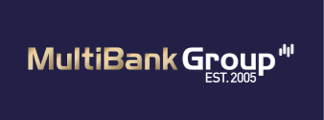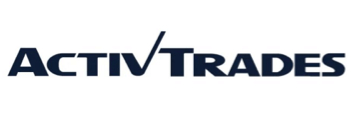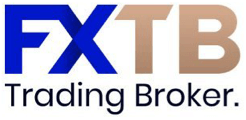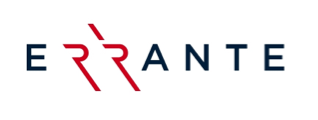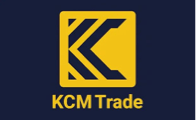Fusion Markets is a cost-focused multi-asset broker known for pairing institutional-style pricing with a straightforward client experience. Launched with the clear objective of lowering the cost of trading, the broker has become popular among Asian traders who value razor-thin spreads, lean commission schedules, and an uncluttered platform setup. Its reputation is built around transparency, a minimal-fee policy, and highly responsive support. In practice, Fusion Markets concentrates on doing a few things exceptionally well: efficient order execution, honest pricing, and a clean operational workflow that makes account management effortless across desktop, web, and mobile.
For traders in Asia, this combination is compelling. The company provides the core tools needed to participate in global markets without the distraction of unnecessary add-ons. It supports MetaTrader 4 and MetaTrader 5, offers local-friendly base currencies, allows micro-lot trading from 0.01 lots, and does not impose a mandatory minimum deposit. Accounts are available in both raw-spread and spread-only formats, complemented by swap-free and demo variants for clients with religious requirements or those building experience in a risk-free environment. One important geographic note stated in Fusion Markets’ materials is that it does not onboard residents of Japan, a detail relevant to regional compliance planning.
| Regulators | ASIC VFSC FSA |
|---|---|
| Minimum Deposit | $0 |
| Leverage | Between 1:30 and 1:500 | Payment Methods | Visa MasterCard Bank Transfer Neteller PerfectMoney Jeton |
Fusion Markets presents a streamlined, professional image from the outset. The interface is modern and uncluttered, featuring clear navigation paths to account types, platform downloads, funding tools, and support. Rather than emphasizing promotions, the broker leads with cost transparency: spreads, commission schedules, and contract details are explained in plain language. This resonates with Asian traders who prioritize measurable value over marketing claims.
The account area is logically organized. After sign-in, the client dashboard centralizes everything: opening live or demo accounts, setting base currency, requesting swap-free status where eligible, adjusting leverage according to entity rules, and initiating deposits or withdrawals. Pages load quickly and maintain consistent design across desktop and mobile browsers. Small touches—such as persistent display of open account parameters, clear notifications on pending verifications, and a concise audit trail of funding actions—convey a sense of operational discipline.
Fusion Markets’ brand voice is calm and technical rather than sales-driven. The company frames itself as a low-cost execution venue for traders who already know what they need: stable pricing, minimal friction, and reliable tools. Education is available, but the emphasis is on providing an environment where self-directed traders can operate efficiently. That positioning is attractive to Asian clients who approach markets analytically and want a broker that “gets out of the way.”
Regulation
Regulatory oversight is the bedrock of trust for Asian traders evaluating an international broker. Fusion Markets operates under a dual-entity model that balances global reach with compliance rigour. Client protections—segregation of funds, strong internal controls, and clear disclosure—are a core part of the broker’s proposition, and its materials emphasize compliance, auditing, and conservative operational practices. Importantly, Fusion Markets specifies that it does not accept residents of Japan, reflecting adherence to local regulatory constraints in that market.
Fusion Markets states it is authorized by the following regulators:
- Seychelles: Financial Services Authority (FSA). The Seychelles entity provides international access with robust operational guidelines and client-fund segregation. It is used to serve a broad global client base, including many Asian jurisdictions.
- Vanuatu: Vanuatu Financial Services Commission (VFSC). The Vanuatu entity supports international clients with flexible leverage (subject to local rules) and the same core protections around segregated funds and risk disclosures.
Across entities, Fusion Markets’ client money is held in segregated accounts separate from corporate operating capital. Negative balance protection is part of the retail framework, helping ensure losses cannot exceed deposits during extreme market events. The broker’s infrastructure emphasizes secure data handling, modern encryption standards, and a comprehensive risk-management program designed to keep platform operations stable during periods of heightened volatility.
For Asian clients, this regulatory architecture provides the essentials: clarity on which entity will onboard them, transparent policies around capital protection, and documentation that matches industry norms for contracts, complaints handling, conflicts of interest, refunds and withdrawals, and privacy. The firm’s explicit restriction on onboarding certain jurisdictions (such as Japan) further demonstrates a compliance-first mindset rather than a sales-first approach.
Opening an Account – Our Experience
Onboarding with Fusion Markets is designed to be frictionless. Registration is fully digital and begins with basic personal details, residence, and intended platform (MT4 or MT5). Verification follows standard Know Your Customer requirements: a government-issued ID and a proof of address document. Uploads are handled through a secure portal, and status indicators clearly display what remains outstanding. In our test flow, approval was fast and communications were succinct, with no unnecessary back-and-forth.
Funding is straightforward. The broker does not impose a mandatory minimum deposit, making it accessible for traders who want to start small or stage deposits over time. In Asia, this is particularly helpful for users who prefer to test live execution with micro-lot sizes before scaling. Deposits and withdrawals support international cards and common e-wallets, alongside bank transfers; processing times are swift and, crucially, the broker’s policy emphasizes minimal internal fees. The transaction ledger in the client area is cleanly presented, aiding bookkeeping for those who track performance and costs meticulously.
Opening additional accounts within the same profile is easy. Traders can maintain both a raw-spread account (Zero) and a spread-only account (Classic) in parallel, denominated in appropriate base currencies to reduce conversion overhead. Swap-free status—if needed for religious reasons—can be requested on eligible accounts, with clear disclosure that administrative charges may apply after extended holding periods. A fully featured demo environment is also available to rehearse strategies and confirm order-handling behavior before deploying capital.
Account Types
Fusion Markets keeps account choice straightforward. Rather than many subtly different profiles, it offers two live account types that map directly to how you prefer to pay for liquidity—raw spreads with a small commission or a spread-only model—plus swap-free and demo variants. Each account supports micro-lot trading, accepts multiple base currencies, and connects to both MT4 and MT5. There is no enforced minimum deposit, so capital can be sized to the strategy rather than to an arbitrary threshold.
Zero Account (Raw)
The Zero Account delivers Fusion Markets’ flagship pricing. Spreads can start from 0.0 pips on selected Forex pairs, with a low commission of USD 2.25 per side per standard lot (USD 4.50 round turn). For traders who measure edge in tenths of a pip—scalpers, high-frequency intraday traders, and EA users—this structure usually lowers the break-even point compared with spread-only models. The account allows micro lots from 0.01, supports all platforms, and keeps contract specifications aligned with institutional conventions. In practice, it is the best fit for strategies where cost precision and execution quality matter more than simplicity.
Classic Account (Spread-Only)
The Classic Account prioritizes simplicity. Spreads begin from about 0.9 pips and there is no commission. Many discretionary traders prefer this model for its predictability, especially if trade frequency is moderate and the cost of raw pricing plus commission does not materially improve outcomes. Classic retains the same platform access, micro-lot capability, and risk parameters as Zero. If you prefer a “what you see is what you pay” structure with fewer moving parts in the cost calculation, Classic is the default choice.
Swap-Free and Demo Accounts
Swap-Free accounts are designed for clients who cannot receive or pay interest for religious reasons. The trading environment mirrors the corresponding live account but replaces overnight interest with transparent administrative adjustments after an extended holding period. Instrument availability is clearly listed within the account documentation. A full-featured Demo account mirrors live pricing and execution logic without financial risk, allowing you to test EAs, rehearse risk rules, and confirm fill behavior across sessions before deploying capital.
Account Type Comparison
The two live accounts at Fusion Markets map directly to how you prefer to pay for liquidity—either raw spreads with a small commission or an all-in spread-only model. Swap-Free and Demo variants mirror these structures for religious or training needs. Use the comparison below to pick the setup that best matches your strategy, size, and turnover.
| Account | Pricing Model | Spreads From | Commission | Minimum Deposit | Minimum Trade | Max Leverage* | Platforms | Micro-Lots | Notes for Asian Traders |
|---|---|---|---|---|---|---|---|---|---|
| Zero (Raw) | Raw interbank pricing | 0.0 pips (selected FX) | USD 2.25 per side per standard lot (USD 4.50 round turn) | No mandatory minimum | 0.01 lot | Entity-dependent | MT4 / MT5 (desktop, web, mobile) | Yes | Best for scalping, EAs, and high-turnover strategies seeking lowest break-even. |
| Classic (Spread-Only) | All costs inside the spread | 0.9 pips (typical minimum) | $0 | No mandatory minimum | 0.01 lot | Entity-dependent | MT4 / MT5 (desktop, web, mobile) | Yes | Simpler cost structure for discretionary intraday and swing trading. |
| Swap-Free | No interest (overnight swaps removed) | Mirrors Zero or Classic pricing | $0 (admin fee may apply after extended holding) | No mandatory minimum | 0.01 lot | Entity-dependent | MT4 / MT5 | Yes | Designed for religious needs; administrative adjustments can apply after a set number of days. |
| Demo | Simulated live conditions | Live-like | $0 | — | Configurable | — | MT4 / MT5 | Yes | Practice environment to test systems, slippage behavior, and funding workflow risk-free. |
* Maximum leverage varies by regulatory entity and instrument. Fusion Markets states it does not onboard residents of Japan.
Platforms
Fusion Markets supports MetaTrader 4 and MetaTrader 5 across desktop, web, and mobile. Both platforms are delivered in their full form, with custom indicators, algorithmic trading (Expert Advisors in MT4 and algorithmic tools in MT5), one-click trading, and rich charting packages. This platform choice aligns with the broker’s low-cost philosophy: rather than reinventing the wheel, it provides the industry’s most widely used terminals and focuses on excellent pricing and execution behind them.
MT4 remains popular with discretionary and EA-driven Forex traders due to its lightweight footprint, extensive library of third-party tools, and mature scripting environment (MQL4). MT5 expands the toolkit with more timeframes, additional order types, a built-in economic calendar, and multi-asset handling that suits traders working across indices, commodities, and other CFDs. Order routing at Fusion Markets uses market execution, minimizing requotes and emphasizing best available price fills from connected liquidity sources.
The web terminals and mobile apps are fully capable for trade management on the move, with synchronized watchlists and consistent chart object rendering. For Asian traders balancing professional schedules with market participation, the mobile environment is crucial: alerts, notifications, and one-tap position adjustments work smoothly, even during busy data releases. Latency-sensitive users can pair the platforms with VPS solutions to host EAs close to the broker’s servers for lower round-trip times.
Execution transparency is an underlying theme. Depth-of-market views in MT5, tick-by-tick charts, and journal logs let traders validate fill quality and slippage. The broker’s no-frills approach—tight pricing and reliable routing—creates a consistent experience accessed through familiar tools, which is precisely what cost-conscious traders demand.
Assets
Fusion Markets offers a carefully curated multi-asset lineup that covers the instruments most used by active traders. The catalog includes major and minor Forex pairs, selected exotics, global indices, metals and energies, and share/ETF CFDs in jurisdictions where they are available. The product design favors liquidity and cost-efficiency over maximum breadth. For Asian strategies—where activity often concentrates in USD/JPY, AUD/USD, NZD/USD, and regional equity benchmarks—this emphasis translates into a high-quality universe with dependable pricing and fast fills.
Available Assets
Below you can see which assets are available for trading with Fusion Markets:
| Asset | Availability |
|---|---|
| Currencies | 81 |
| Real Stocks | ✗ |
| Stock CFDs | ✓ |
| Commodities | ✓ |
| Indices | ✓ |
| Real ETFs | ✗ |
| ETFs CFDs | ✗ |
| Futures | ✗ |
| Options | ✗ |
| Bonds | ✗ |
| Cryptocurrency CFDs | ✓ |
| Real Cryptocurrencies | ✗ |
*Availability of certain assets may vary based on account type, platform, or region.
Currency trading is the broker’s backbone. Spreads on liquid pairs are particularly competitive during Asian morning hours when Tokyo opens and commodity-linked currencies become active. Metals (notably gold) and energies (WTI and Brent) provide additional macro levers for hedging or directional plays. Equity index CFDs extend the toolkit for top-down positioning and volatility strategies, while equities and ETFs—where available under the chosen entity—enable themes linked to sectors and regional narratives. Across classes, contract specifications are clearly documented inside MT4/MT5, including tick size, margin requirements, trading hours, and swap details.
The uniform platform experience across assets is a practical advantage. Traders can execute multi-asset strategies without switching systems, and risk exposure remains visible in a single window. For Asian traders implementing correlation-based approaches (for example, pairing gold with JPY crosses, or trading AUD against iron-ore-linked sentiment), this integration reduces operational overhead and helps keep focus on analysis rather than logistics.
Spreads
Fusion Markets’ pricing philosophy is to keep spreads as close to the underlying market as possible and to be explicit about any commission added for raw access. The Zero Account streams interbank-style quotes with spreads from 0.0 pips on major pairs, paired with a USD 2.25 per side commission. The Classic Account wraps transaction costs into the spread, starting from about 0.9 pips, with no separate commission. Which model is cheaper depends on your average trade size, holding period, and turnover. High-frequency styles tend to favor raw pricing; lower-frequency discretionary approaches often find spread-only simpler and cost-competitive.
Spreads Offered
Below a visual representation of Fusion Markets's spreads across several currency pairs:
*Spreads are variable and may change based on market conditions, account types and trading volumes.
Crucially, Fusion Markets aims for consistency. Many brokers advertise attractive minimums that are rarely available; what matters is the typical spread during the hours you trade. During Asian sessions, spreads on USD/JPY, AUD/USD, and NZD/USD are tight and stable thanks to strong liquidity in those pairs. When volatility increases around data releases, spreads widen naturally, but the broker’s aggregation of multiple liquidity sources helps hold bid–ask differentials within reasonable ranges and keeps slippage modest under market execution.
For practical comparison inside your own strategy, track your effective spread (spread plus commission translated into pips) and your realized slippage. Fusion Markets’ platform logs and account history make this easy. Over time, you should see whether Zero or Classic yields the lower average cost per trade for your specific tactics. This data-led approach is particularly valuable for Asian traders operating during both local and overlapping sessions with London or New York, when conditions differ meaningfully.
Other Trading Costs
Spreads and commissions are only part of the cost equation. Fusion Markets maintains a deliberately simple policy on non-trading fees so you can forecast total cost of ownership with minimal uncertainty. Deposits and withdrawals are processed efficiently with no unnecessary internal charges; any fees that do arise typically come from third-party providers (card issuers, payment gateways, or intermediary banks). Funding options include cards, bank transfers, and popular e-wallets, with fast processing that supports the cash-flow needs of active intraday traders.
Overnight financing—swaps—applies to leveraged positions held beyond the platform’s rollover time. Swap rates are transparently displayed inside MT4/MT5 for each instrument and direction. For clients using Swap-Free accounts, interest is removed and, where applicable, a clear administrative fee schedule applies after a defined number of days. This structure keeps compliance with religious requirements while preserving access to the same core market universe.
Conversion costs can arise when the account’s base currency differs from the instrument’s settlement currency. Fusion Markets handles conversions at competitive market rates to minimize leakage. Traders in Asia often fund in USD, JPY, AUD, or SGD; matching base currency to strategy can reduce conversions materially, especially for high-frequency systems. The client portal makes it easy to maintain multiple sub-accounts in different base currencies, thereby optimizing for instrument mix and local funding realities.
There is no punitive minimum activity requirement. If an inactivity fee applies after a long dormant period, it is disclosed clearly in the client agreement and is designed to cover account maintenance rather than to penalize intermittent traders. Internal transfers between sub-accounts are straightforward and generally free. The result is a cost framework that is both predictable and aligned with the broker’s “low-cost first” philosophy.
Trading Conditions
Trading conditions at Fusion Markets are built around speed, clarity, and control. Orders are routed using market execution, so the platform targets the best available price rather than holding or requoting. Micro lots from 0.01 make granular risk scaling practical, and there is no mandated minimum deposit, allowing strategy-first capital allocation. Leverage levels depend on the entity and product, with conservative settings applied where required by regulation and more flexible caps available under international entities—always accompanied by clear risk disclosures and negative balance protection for retail clients.
Margin call and stop-out levels are consistent and clearly posted in account specifications, allowing traders to model worst-case scenarios accurately. One-click trading in MT4/MT5, customizable hotkeys, and partial close functions support both speed and nuance in execution. The broker’s infrastructure favors low latency and high uptime—critical for traders in Asia who may operate both at local opens and during overlapping global sessions. VPS compatibility lets algorithmic traders position their EAs close to servers to reduce round-trip times further.
Operationally, everything is designed to reduce ambiguity. Contract specs are detailed; trading hours reflect daylight-saving adjustments automatically; holidays and special session notes are posted in advance. Risk warnings are prominent, and the broker’s documentation set (client agreement, conflict-of-interest policy, complaint handling procedure, refund policy, and more) reflects a compliance culture rather than a promotional one. From a trader’s perspective, this translates into fewer surprises and more room to focus on analysis, execution, and review.
Is Fusion Markets a Good Option for Asian Traders?
For many Asian traders, the ideal broker is one that reliably minimizes costs and maximizes clarity. Fusion Markets fits that profile. The Zero and Classic accounts let clients choose the cost model that best matches their strategy, with no artificial hurdles like high minimum deposits. Platform choice—MT4 or MT5—covers both legacy EA ecosystems and modern multi-asset needs. Funding is straightforward, processing is quick, and base-currency flexibility reduces conversion drag for regional portfolios.
From a timezone standpoint, Fusion Markets performs well during the Asian morning, when pricing in JPY and AUD pairs is keen. Execution quality holds up during overlapping sessions, and the broker’s emphasis on market execution and aggregated liquidity helps keep realized costs aligned with quoted ones. For traders who want a “quiet” broker—one that prioritizes trading mechanics over marketing—Fusion Markets offers a focused, professional environment with a proven low-cost ethos. The only caveat is jurisdictional availability: the broker clearly states it does not accept residents of Japan, so eligibility depends on local rules and the entity under which the account is opened.
Our Verdict
Fusion Markets is a specialist in cost efficiency and execution simplicity. Its two-account framework—raw pricing with a small commission or spread-only—covers the vast majority of trading styles without unnecessary complexity. Platform support is exactly what serious traders expect (MT4/MT5 across devices), and operational discipline shows through in everything from onboarding to funding to documentation. For Asian traders who value thin spreads, low friction, and a broker that focuses on the essentials, Fusion Markets is a strong, reliable option.
The firm’s regulatory stance, with entities in Seychelles and Vanuatu and a clear statement excluding residents of certain jurisdictions such as Japan, underscores a compliance-aware posture. Add in micro-lot access, no mandatory minimum deposit, and transparent swaps and conversions, and you have a trading venue that is easy to understand and inexpensive to use. Fusion Markets does not try to be all things to all people; instead, it delivers what active traders actually need—and does so with professional consistency.
Frecuently Asked Questions
How can I open an account with Fusion Markets?
Registration is fully online. Provide basic personal details, choose MT4 or MT5, and upload a government ID and proof of address for verification. Once approved, you can fund via cards, bank transfer, or supported e-wallets and start trading immediately. There is no mandatory minimum deposit, so you can size capital to your strategy.
Is Fusion Markets regulated and safe?
Fusion Markets operates under oversight from the Seychelles FSA and the Vanuatu VFSC. Client funds are segregated from company capital, negative balance protection applies to retail clients, and the broker’s documentation and policies emphasize transparency and compliance. Fusion Markets specifies that it does not accept residents of Japan.
What platforms does Fusion Markets offer?
MetaTrader 4 and MetaTrader 5 are available on desktop, web, and mobile. Both platforms support advanced charting, one-click trading, and automation (EAs in MT4 and algorithmic tools in MT5). VPS compatibility is available for latency-sensitive strategies.
What account types are available?
Two core live accounts: Zero (raw spreads from 0.0 pips with a commission of USD 2.25 per side per standard lot) and Classic (spread-only from about 0.9 pips, zero commission). Swap-Free and Demo variants are also available to meet religious or training needs.
Does Fusion Markets charge hidden fees?
No. Non-trading fees are deliberately minimized. Deposits and withdrawals are processed without unnecessary internal charges; any fees usually originate from payment providers. Swaps and any administrative adjustments for swap-free accounts are published clearly in-platform. Currency conversions are handled at competitive rates.
Is Fusion Markets suitable for beginners?
Yes. Micro-lot trading from 0.01 lots, no mandatory minimum deposit, and a clean client portal make it approachable. At the same time, raw pricing and platform depth support serious system development, so traders can grow without changing brokers.
Are there any regional restrictions for Asia?
Fusion Markets states that it does not accept residents of Japan. For other Asian countries, eligibility depends on the applicable entity and local regulations. During onboarding, the broker will clarify which entity will service your account and the leverage available.
Note: Any opinions expressed in this article are not to be considered investment advice and are solely those of the authors. Singapore Forex Club is not responsible for any financial decisions based on this article's contents. Readers may use this data for information and educational purposes only.







